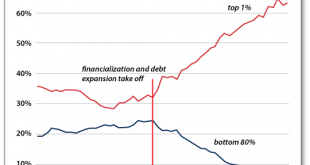Forgive the title but I want to get my point across.
In our October 27th Roadmap, you saw the #1 secret that separates rich lives from poor lives: Decisions.
Today, you’ll be introduced to decisions’ twin: Habits.
Habits are your default way of solving a problem.
If you’re unsatisfied with your financial situation…
If you need to lose weight…
If you’re unhappy…
… then your habits are likely to blame.
The problem is, at some point in your life – maybe you’re already there now – you feel like your habits are set in stone.
You’ve been doing things a certain way your whole life. You’re lazy.
It’s nothing to be ashamed of. Just something to recognize.
To change your habits now would require too much effort. Too much time you don’t want to give up.
I get it…
I’m only 40 years old and already I’m starting to feel this way.
However I recently discovered an essay that shifted my own stubborn outlook…
One that will introduce you to a new approach for changing your worst habits .
It’s a method few people know of…
The concept is: Overcompensation.
I learned this from entrepreneur and writer Derek Sivers, who detailed it on his blog.
The idea can be summarized with a metaphor. Here’s how Derek puts it:
“Let’s use the metaphor of a bunch of bricks on a seesaw. Right now all the bricks are stacked on one side. This is the way you have been.

To make a change, most people don’t do enough.
If you do something small and sensible, it’s like moving one brick. You’re still unbalanced.

You think you made the change, but it’s not accounting for:
— a lifetime of doing it the other way
— your environment that made you that way
— the pressure from friends to stay that way
— and the undertow of old habits.
So, to make a change, you have to be extreme. Go all the way the other way. It will feel like overcompensating, but you have to stack a huge pile of bricks on the other side.

This new you sounds extreme and exciting. You will think you’re going to be completely changed.
But actually the old stuff is still there. So really this is what you needed to do to balance, to compensate for that cultural baggage, self-identity, habit, and history.
Once balanced, it will sink in, and become your new normal.”
Derek is right. Think about a time in your life when you made an extreme change…
While it might have seemed like the old you was forever gone, as time passed, you started to see your old self resurface. Except this time with your new and improved self there too.
But the balanced state you reach is not the same as before.
Over the course of your change, you acquired new skills and new knowledge which overall elevates you to a new homeostatic state.
If this all sounds a bit fuzzy, here’s an example Derek gives to clear it up:
“You have a tendency to blame others for your situation. We all do this.

You realize this is hurting your life. You think, “I shouldn’t do that so much. I should take some responsibility.”
So you try to make some changes.

Nope. That’s not good enough. Still unbalanced. You need to go to a further extreme, in a way that will feel like overcompensating.
You need to think, “Absolutely everything is my fault. All of it. It’s my fault the world is the way it is. It’s my fault the government isn’t exactly to my liking. It’s my responsibility to fix everything I don’t love. It’s my fault that others act the way they do towards me.”
Sounds extreme, right? It will feel like this:

You try to think this new way. Sometimes you really can.
But you still can’t help feeling that some things are not your fault:

That’s OK. Now you’re balanced. This sinks in and becomes your new normal way of thinking.”

This concept of overcompensation can be applied to all areas of your life.
If you’re trying to instill new health habits, and they don’t seem to stick, go to the extreme.
Instead of only spending money on “just one or two guilty pleasures” per week… try cutting all guilty pleasures.
Instead of speculating “just a little bit of money” in a new investment you don’t understand… try keeping all of that powder dry for a good investment you do understand.
Instead of watching another netflix episode, try reading only books.
It even works with dieting.
Instead of eating healthy 80% of the time, try 100%.
After a few weeks of consciously trying to go to the extreme 100% of the time, you’ll likely end up actually having good habits 70-80% of the time. That’s pretty damn good.
Give it a shot and let me know how it goes.
To a richer life,
Nilus Mattive
for The Rich Life Roadmap
Source link
 Best Stock Hints Latest Tips To Buy & Invest Best Stocks Today
Best Stock Hints Latest Tips To Buy & Invest Best Stocks Today



